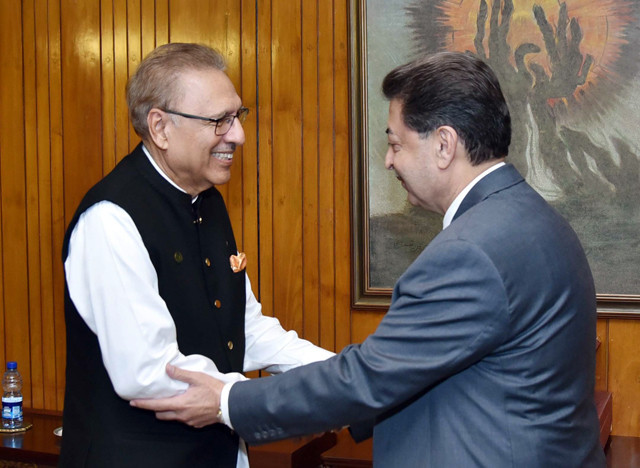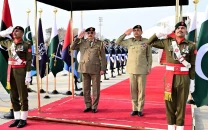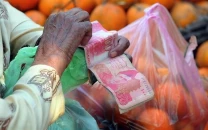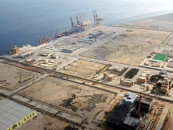CEC rebuffs ‘level playing field’ concerns
Says question of allowing fair chance to all parties arises after issuance of election schedule

The chief election commissioner (CEC) has addressed concerns regarding a "level playing field," stating that the question of allowing a fair chance to political parties arises only after the Election Commission of Pakistan (ECP) issues the election schedule.
"Everyone demands that elections should be held in a fair and transparent manner. However, attempts are also [continually] made to interfere in the election process," said CEC Sikandar Sultan Raja on Thursday during an informal interaction with journalists after a meeting with the president.
Some political parties, particularly the PPP, have been complaining about the lack of a level playing field ahead of the general elections, which the ECP announced on Thursday will be held on February 8, 2024.
CEC Raja said: "The ECP can be held responsible for providing a level playing field to all political parties only after it issues the election schedule."
An election schedule, also known as an electoral schedule or election timetable, is a timeline or plan that outlines the key dates and deadlines for various stages and activities related to an election.
An election schedule typically includes dates for activities such as voter registration deadlines, nomination deadlines, campaign periods, polling day, vote counting, legal challenges or recounts, certification of results, and the transition of power.
The CEC said the poll's oversight authority has so far made all decisions after mutual consultation.
"We believe that all the decisions we have taken so far were right. However, we have been subjected to unjustified criticism," he added.
Sikanadar Sultan Raja said it is not the ECP's responsibility to install caretaker governments, but the authority is supposed to keep a check on them.
"That is why we changed the K-P's cabinet and issued notices to the federal cabinet as well. We also changed two members of the Capital Development Authority (CDA)."
The CEC also defended the ECP's decision to defer elections for the Punjab and K-P assemblies. "We stand by our decision that elections should be held simultaneously all over the country [and not in phases]," he added.
The PTI party, which ruled over Punjab and the K-P provinces, dissolved the provincial assemblies in January this year. According to the Constitution, the ECP was bound to hold elections for the two legislatures within 90 days—by mid-April. However, elections were not held in the provinces within the stipulated time.
Talking with reference to his meeting with President Dr Arif Alvi, the CEC said he had earlier decided not to meet the president after consultation with all ECP members.
"Today’s meeting took place in a very pleasant atmosphere. The president welcomed us in a good way, the pictures of which you must have seen."
After the dissolution of the National Assembly, the president wrote a letter to the CEC on August 22, inviting him to meet and finalize a date for the elections within the 90-day constitutional deadline.
The CEC had, however, turned down the president's invitation on August 24, contending that after the enactment of the Elections Act (Amendment) Bill 2023, it was the sole prerogative of the ECP to announce the election date.
The CEC and other ECP members, however, met the president on Thursday on the instruction of the Supreme Court of Pakistan.



















COMMENTS
Comments are moderated and generally will be posted if they are on-topic and not abusive.
For more information, please see our Comments FAQ